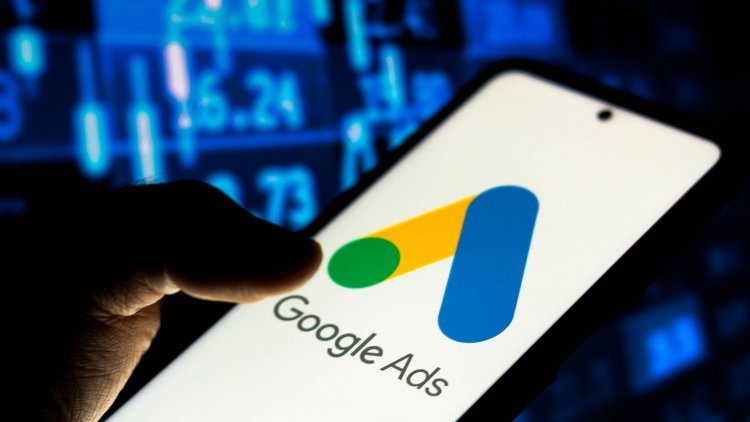Despite worldwide "uncertainty," Google search advertising outperformed their targets
On a conference call with financial analysts, a trio of Alphabet executives sounded cautious, using the word "uncertain" or "uncertainty" at least 13 times to describe the state of the economy. Since disclosures started in 2018, YouTube ad sales increased at their sluggishest rate.

Google search advertisements helped parent Alphabet Inc. come close to meeting Wall Street sales projections on Tuesday, sending shares up on hope that the biggest seller of online advertising in the world may do better than smaller competitors in the event of a worldwide recession.
On a conference call with financial analysts, a trio of Alphabet executives sounded cautious, using the word "uncertain" or "uncertainty" at least 13 times to describe the state of the economy. Since disclosures started in 2018, YouTube ad sales increased at their sluggishest rate.
Investors, however, were more interested in other factors, particularly the fact that Google search, the company's biggest revenue generator, actually outperformed forecasts in the second quarter. Following the results, Alphabet's shares increased 5.5 percent in after-hours trade.
Investors breathed a sigh of relief despite the lacklustre quarter since expectations were so low, according to Jesse Cohen, senior analyst at Investing.com.
In contrast, Snap Inc.'s shares dropped more than 25% last week after the firm missed sales targets and issued a warning about a slowing ad market.
Executives from Alphabet claimed that Google was not immune to the downturn, which was caused by customers experiencing product shortages, a decline in demand, and a number of other causes. Some ad buyers this year have been compelled to reduce marketing budgets due to growing wages, as well as the rising cost of petrol and other products.
However, Google has fared better in hurricanes than social media firms. It generates income through a wider range of ad-market services, and as search advertising frequently only contain text, clients may find them to be less expensive to produce.
Due to the fact that search advertising are frequently targeted at consumers who are actively looking for comparable products and produce better results, clients occasionally give them priority.
The growth in search ad sales for Google during the second quarter, which totaled $40.69 billion and surpassed FactSet projections of $40.15 billion, was largely driven by travel and retail advertisers.
The total revenue reported by Alphabet for the second quarter was $69.69 billion, with 81 percent coming from Google's ad division. This figure was almost exactly in line with the $69.88 billion average expectation of investment researchers polled by Refinitiv.
According to Insider Intelligence analyst Evelyn Mitchell, "Google is positioned reasonably well to weather the choppy waters that lie ahead."
Threats to sales
Concerns regarding Alphabet's future are driven by a variety of issues. Because of the strong dollar, large American multinational corporations like Alphabet are progressively transforming global revenue into less cash.
If not for currency fluctuations, according to Alphabet, sales would have been close to $72 billion. The company's sales are generated outside of the United States to the tune of about 55%.
According to Alphabet Chief Financial Officer Ruth Porat, the third-quarter currency impact will be much more significant.
Google is deducting a smaller percentage of revenue from the sale of apps created by independent software developers in the face of scrutiny from antitrust regulators on five continents. According to Porat, users also spent less on applications in the second quarter.
Other setbacks include YouTube's ad revenue shifting as its advertising alternatives experience popularity ups and downs, and Google suspending sales in Russia due to the conflict in Ukraine.
Sales from Google Cloud fell short of analysts' expectations, coming in at $6.3 billion instead of $6.4 billion, while YouTube advertisements also underperformed, coming in at $7.3 billion instead of $7.5 billion, according to FactSet data.
When Netflix Inc. announced that it had selected Microsoft Corp.'s ad technology to aid with its initial foray into inserting adverts on its streaming video service earlier this month, Google lost out on a significant new sales partner.
Investors are used to seeing gross profit margins of up to 60%, therefore Google has recently started limiting recruiting in some departments to better control costs.
Alphabet, meanwhile, is also advancing with growing its cloud computing presence, constructing new offices, and extending its Google Fiber internet service to new communities.
Compared to the average forecast of $1.29 per share, Alphabet's second-quarter profit decreased to $16 billion, or $1.21 per share. Due to irregular profits or losses in the shares it holds in several startups, at least on paper, Alphabet's profit is frequently uncertain.
Prior to the release of the quarterly data, Alphabet stock had dropped more than 27 percent this year than the S&P 500 index as a whole. On July 15, Alphabet divided its stock 20-for-1, lifting equities momentarily before poor Snap and Twitter Inc. earnings sent them plummeting.
The second-largest online advertising firm, owned by Meta Platforms Inc. through Facebook and Instagram, reports earnings on Wednesday. Following Alphabet's earnings on Tuesday, its shares increased by almost 3%.




 admin
admin 




















